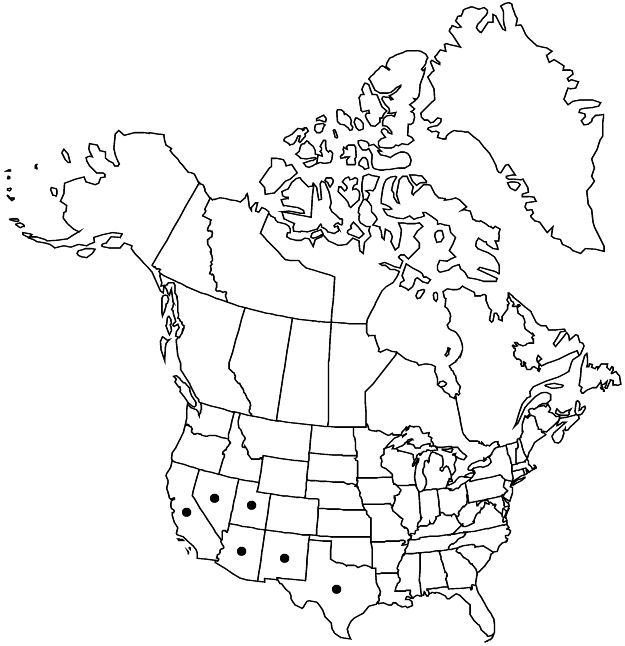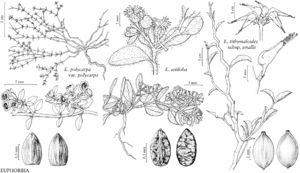Difference between revisions of "Euphorbia setiloba"
Pacif. Railr. Rep. 5(2): 364. 1857.
FNA>Volume Importer |
FNA>Volume Importer |
||
| Line 10: | Line 10: | ||
|special_status={{Treatment/ID/Special_status | |special_status={{Treatment/ID/Special_status | ||
|code=F | |code=F | ||
| − | |label= | + | |label=Illustrated |
}} | }} | ||
|basionyms= | |basionyms= | ||
| Line 16: | Line 16: | ||
|name=Chamaesyce setiloba | |name=Chamaesyce setiloba | ||
|authority=(Engelmann) Millspaugh | |authority=(Engelmann) Millspaugh | ||
| + | |rank=species | ||
}} | }} | ||
|hierarchy=Euphorbiaceae;Euphorbia;Euphorbia sect. Anisophyllum;Euphorbia setiloba | |hierarchy=Euphorbiaceae;Euphorbia;Euphorbia sect. Anisophyllum;Euphorbia setiloba | ||
| Line 39: | Line 40: | ||
-->{{#Taxon: | -->{{#Taxon: | ||
name=Euphorbia setiloba | name=Euphorbia setiloba | ||
| − | |||
|authority=Engelmann in War Department [U.S.] | |authority=Engelmann in War Department [U.S.] | ||
|rank=species | |rank=species | ||
| Line 53: | Line 53: | ||
|publication title=Pacif. Railr. Rep. | |publication title=Pacif. Railr. Rep. | ||
|publication year=1857 | |publication year=1857 | ||
| − | |special status= | + | |special status=Illustrated |
| − | |source xml=https://jpend@bitbucket.org/aafc-mbb/fna-data-curation.git/src/ | + | |source xml=https://jpend@bitbucket.org/aafc-mbb/fna-data-curation.git/src/eaa6e58056e40c9ef614d8f47aea294977a1a5e9/coarse_grained_fna_xml/V12/V12_385.xml |
|genus=Euphorbia | |genus=Euphorbia | ||
|section=Euphorbia sect. Anisophyllum | |section=Euphorbia sect. Anisophyllum | ||
Revision as of 18:57, 16 December 2019
Herbs, annual, with slender taproot. Stems prostrate, mat-forming, 5–50 cm, villous with glistening glandular hairs. Leaves opposite; stipules distinct, filiform, rudimentary to 0.2 mm, glabrous or sparsely villous with glistening glandular hairs; petiole 0.5–1.5 mm, villous; blade oblong, ovate, or elliptic, 3–7 × 2–4 mm, base asymmetric, rounded, margins entire, apex obtuse, surfaces villous; weakly 3-veined from base, commonly only midvein conspicuous. Cyathia solitary at distal nodes, nodes often congested toward tips of branches; peduncle 0.2–1.6 mm. Involucre campanulate or urceolate, 0.7–1 × 0.5–0.8 mm, villous; glands 4, red to pink, oblong to slightly reniform, 0.1–0.2 × 0.2–0.3 mm; appendages white to pink, deeply incised into 3–6 triangular to subulate, attenuate, acute segments, 0.3–0.6 × 0.6–1 mm, segments entire. Staminate flowers 3–7. Pistillate flowers: ovary villous; styles 0.3–0.4 mm, 2-fid 1/2 length. Capsules subglobose to ovoid, 1–1.2 mm diam., villous; columella 0.9–1.1 mm. Seeds pink to light gray, narrowly ovoid, 4-angled in cross section, 0.8–1 × 0.5–0.6 mm, dimpled or with faint transverse ridges that do not pass through abaxial keel.
Phenology: Flowering nearly year-round in response to sufficient moisture.
Habitat: Desert scrub, blackbrush scrub, Joshua tree woodlands, grasslands, often in sandy areas.
Elevation: 20–1600 m.
Distribution

Ariz., Calif., Nev., N.Mex., Tex., Utah, Mexico (Baja California, Baja California Sur, Chihuahua, Durango, Sinaloa, Sonora).
Discussion
Selected References
None.
